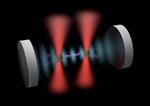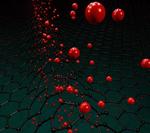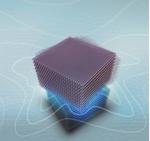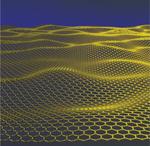Other

“In a significant development in the field of superconductivity, researchers at The University of Manchester have successfully achieved robust superconductivity in high magnetic fields using a newly created one-dimensional (1D) system. This breakthrough offers a promising pathway to achieving superconductivity …

“The question of where the boundary between classical and quantum physics lies is one of the longest-standing pursuits of modern scientific research and in new research published today, scientists demonstrate a novel platform that could help us find an answer …

“Researchers at University of Manchester and the École polytechnique fédérale de Lausanne (EPFL), Switzerland, have revealed an innovative approach to track individual molecule dynamics within nanofluidic structures, illuminating their response to molecules in ways never before possible. Nanofluidics, the study …

“Researchers from The University of Manchester and the University of Warwick finally solved the long-standing puzzle of why graphene is so much more permeable to protons than expected by theory. A decade ago, scientists at The University of Manchester demonstrated …
News Manchester astronomer captures stunning images of the Ring Nebula on James Webb Space Telescope

“NASA’s James Webb Space Telescope (JWST) has recorded breath-taking new images of the iconic Ring Nebula, also known as Messier 57. The images, released today by an international team of astronomers led by Professor Mike Barlow (UCL, UK) and …
News Manchester scientists caught Hofstadter’s butterfly in one of the most ancient materials on Earth

“Researchers in the National Graphene Institute (NGI) at The University of Manchester have revisited one of the most ancient materials on Earth – graphite, and discovered new physics that has eluded the field for decades. Despite being made entirely of layers …
News Astronomers find first evidence for new class of gravitational waves which could unveil origin of the Universe

“After 25 years of observations, an international team of astronomers has seen the first evidence of ultra-low-frequency gravitational waves. The waves are expected to come from pairs of supermassive black holes found in the centres of merging galaxies and the …

“Scientists have made a significant advancement with quantum technologies that could transform complex systems modelling with an accurate and effective approach that requires significantly reduced memory. Complex systems play a vital role in our daily lives, whether that be predicting …

“In a paper published in Nature this week (13 Apr 2023), researchers from The University of Manchester report record-high magnetoresistance that appears in graphene under ambient conditions. Materials that strongly change their resistivity under magnetic fields are highly sought for …

“A team of researchers led by Prof. Andre Geim from the National Graphene Institute (NGI) have discovered that nanoripples in graphene can make it a strong catalyst, contrary to general expectations that the carbon sheet is as chemically inert as …

